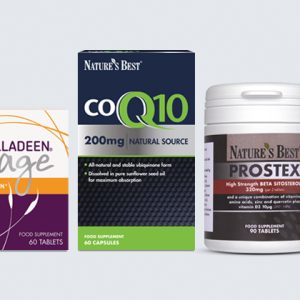Onions (Allium) are bulb vegetables related to chives, garlic, scallions, shallots, and leeks. They contain high levels of ANTIOXIDANTS and sulfur-containing compound levels linked to reduced cancer risk, lower blood sugar levels, and better bone health.
Highly versatile, onions are excellent flavorings and can be cooked any way without losing their goodness. You can bake, boil, grill, fry, roast, or sauté the things and even eat them raw.
Onions come in many sizes, shapes, and colors, but seemingly red onions are best as their pigmentation is due to the presence of ANTHOCYANINS.
The taste of onions ranges from mild and sweet to sharp and spicy, depending on the variety, season, and age. They can be eaten before they mature, the youngest being scallions and spring or summer onions.
Red onions are called SPANISH or PURPLE onions and are very mild with a sweetish taste. There are four varieties:
Red onions have more health benefits than white onions. They provide ten percent of the vitamin C RDA, but red onions contain MORE antioxidants.
Although White onion has more fiber and sulfur, red onion has more FLAVONOLS and anthocyanins. For example, the total anthocyanin contents determined by the pH differential method were on average 0.75 mg per 100 g fresh weight in white onion, 9.64 mg per100 g in yellow onion, and a huge 30 mg per 100 g in red onion, respectively. So, the anthocyanin content in onions is red>yellow>white. The average flavonoid contents of onions with three different colors are 36.64 and 111.10 mg per 100 g in yellow and red, respectively, whereas white onion contains none.
Red onions are also a more effective natural blood thinner than white onions because of their flavonoids, which help thin the blood. In addition, the phytochemicals in red onion help boost the immune system. They are also rich in vitamins K, B6, and C. However, the phytochemicals act as a stimulant to vitamin C within the body.
The fiber in red onions helps digestion and prevents constipation.
As for minerals, red onion contains CALCIUM, MAGNESIUM, POTASSIUM, CHROMIUM, IRON, and MANGANESE. It also contains folate and thiamine. The chromium is suitable for people with diabetes as it impacts blood sugar levels by slowing and controlling the release of sugar into the body. Because chromium affects insulin activity, a lack of it may cause weight gain, so if you want to lose weight, eat red onions!
Among the antioxidants in red onion is QUERCETIN. Antioxidants fight the free radicals, which are toxic organic waste. However, they are considered dangerous because they can cause cancer by mutating DNA. Because of that, quercetin is most valued as studies show that it can even reduce the spreading of cancer through the body. Interestingly, studies showed that consuming half a red onion each day may reduce the risk of stomach cancer by a half. For example, in Georgia, USA, where red onion is grown, the number of stomach cancer cases is half the US average. Similar data comes from China, where red onion is mainly used.
Quercetin also helps to regulate blood pressure. According to a study by the University of Utah, this antioxidant can reduce the risk of heart disease and stroke. Quercetin is also an anti-inflammatory, so it benefits people suffering from allergies, asthma, and arthritis.
Red onion’s anti-inflammatory powers help acne sufferers. Applying red onion mixed with honey or olive oil to the affected areas of the face reduces redness and swelling.
If you get stung by a bee or wasp, apply red onion to the injured area, and you will get instant relief from the burning sensation. That is because red onion helps neutralize the harmful effects of the cocktail of substances injected by these stinging insects, which includes mast-cell degranulation protein, hyaluronidase, acid phosphatase, lysophospholipase, histamine, dopamine, norepinephrine, and serotonin.
Red onion is a very low glycemic food with a glycemic index of GI, so it is ideal when dieting. In addition, 25 g contains only 11 calories and zero fat.
If you have ringing in the ears due to tinnitus, or earache, a few drops of red onion in the ear may help.
Does red onion have side effects? To some people, it has, especially those with an onion allergy. Onions give them itchy eyes, redness, and rashes. It may also cause them to vomit and suffer gastric problems.
All in all, red onions are full of antioxidants, and may help fight several maladies. They are high in quercetin and form part of a healthy diet. If you know what you are doing, the above will help you get and maintain the essential minerals your body needs from red onions.









